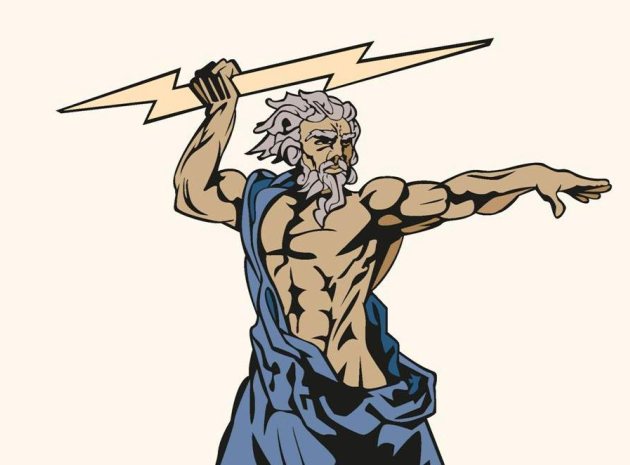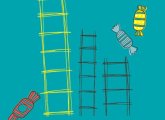Greek myths are captivating stories, replete with noble heroes, grotesque monsters and capricious gods. Much like the Marvel universe, no story or character stands alone; they are a tapestry of inter-connected plots featuring a dazzling cast. As well as being entertaining, they often come with a clear life lesson – Icarus learned the hard way to listen to one’s elders, for example. But are they of any use to young people today?
Cultural context
For our ancestors, myths performed a specific function: they explained how everything worked, from the rising sun to the return of spring. This means that reading them today is like peering through a window into the ancient mind. We can deduce a culture’s values, beliefs and way of life through the stories they told. For example, we know that the ancient Greeks buried their dead with a coin so they could pay their way across the mythical River Styx in the afterlife. And we are aware of the immense value placed on the olive tree, because it was believed to be a sacred gift from the goddess Athena.
Myths contextualise the pottery shards, sculptures and marble friezes we shuffle by in museums. For me, they breathed life into ancient history lessons and added a much-needed creative dimension. They transported me from the classroom to an alternate time and space of infinite possibility. In the world of myths, gods aren’t benevolent beings, but as petty and vain as mortals. Tragedy and betrayal lurk around every corner, and being a hero won’t save you from a sticky ending. It was hard not to be enthralled by this world that didn’t follow the neat narrative of my childhood books.
Deep impact
Moreover, a basic knowledge of Greek mythology isn’t only useful for bringing ancient history to life. It’s an essential tool for connecting the dots in our modern world.
There’s no denying the impact ancient Greece has had on Western culture. From our alphabet and basic grammatical concepts to philosophy, the way we write and think is indebted to the cultural developments of that rich era. The world of sport (Olympics, marathon), science (psychology, galaxy) and even consumer brands (Nike, Hermes) have ancient Greek fingerprints all over them.
Many of us incorporate Greek myths into our vocabulary without realising. In fact, it would be difficult to go one day without using a word or phrase derived from them. Think about phrases like ‘Achilles heel’, ‘Midas touch’ or ‘Pandora’s box’; they are all plucked from stories first told more than two thousand years ago. And of course, these everyday idioms take on new depth when you discover the story behind them.
New twists
The influence doesn’t stop at language, either – myths are part of the Western heritage and continue to inform contemporary culture. Writers and creatives often look to ancient Greece for inspiration, before offering a new take on millenia-old narratives. These were first told and shared through the mouths of storytellers, a tradition that has long since died out. But the themes present in the original tales are timeless. Family disputes, destiny, pride and betrayal are still relevant to modern audiences, which goes some way towards explaining the enduring appeal of Greek myths.
From commercial action movies to literary bestsellers, myths continue to dominate the popular imagination. Percy Jackson & The Olympians by Rick Riordan throws American teens into an epic fantasy quest, while Circe by Madeleine Miller is a fresh, feminist reimagining of Homer’s Odyssey.
Modern twists on ancient legends span every genre, from dystopian fiction like Sisyphusa by Michael Richmond to the hilarious children’s series Who Let The Gods Out? by Maz Evans. It’s a testament to their universal appeal that we’re still fascinated with the characters and events brought to life in these classic stories; and discovering the original source material gives young people the tools they need fully to engage with the culture they consume.
Global influences
While Greek myths have probably had the most profound impact on Western culture, nations around the world have fascinating narrative traditions of their own. The worldwide success of Children of Blood and Bone by Tomi Adeyemi, a thrilling Young Adult fantasy derived from Yoruba folklore, shows there’s a strong appetite for myth based stories outside of the Western canon. Young people should be made aware of the rich traditions that so many cultures build upon – and what could be better than discovering that through the medium of storytelling?
Good storytelling is good storytelling, no matter how many centuries old. Thousands of years after their conception, myths continue to spark the imagination and are ripe for re-interpretation, including in the classroom, and across the curriculum. They’re a joy to consume, no matter the guise. I know that my debut Young Adult novel Oh My Gods, which features a half-mortal teen girl living with her family of Olympian gods in North London, may not have been written without a class trip to see Disney’s Hercules over twenty years ago. Every child deserves the opportunity to be captivated by these tales as old as time, and put their own spin on them for future generations.
Six of the best
Share these brilliant books – inspired by mythology from around the world – with your students, and see where the stories take them…
+ The Twisted Tree, Rachel Burge
A ghost story steeped in Nordic myth, this is a tense read filled with terrifying moments.
+ Children of Blood & Bone, Tomi Adeyemi
West African mythology and contemporary racial politics infuse this fantasy world of magic and violence.
+ The Girl From Everywhere, Heidi Heilig
An ambitious novel that weaves time travel, mythic lands, legends and romance into one swashbuckling story.
+ Zahrah the Windseeker, Nnedi Okorafor
In Okorafor’s mythical version of Africa, technology is fused with botany to create a wholly original world.
+ The Otherlife, Julia Gray
Norse gods feature in this darkly mysterious story about two British boys struggling in a harsh school for the ultra-privileged.
+ Avalon High by Meg Cabot
Cabot puts a King Arthur twist on high school drama in this fun, easy read.
About the author
Alexandra Sheppard is a social media strategist by day and writer by night. She was born and raised in North London, where she still lives and hopes never to leave.










